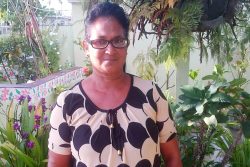Even as UNESCO observes International Literacy Day today, it recognizes the need to improve literacy and adult learning internationally and regionally.
And in response to the region issue, the organization has moved to address it through its Family Literacy Programme (FLP).
In a news release, it was noted that statistics published by UNESCO in 2006 show a total adult literacy rate of 70.1% for the Caribbean. This figure, the release said, is “well below the 98.9% rate of developed countries.”
According to this release, issued by PRMR Inc, UNESCO reports that worldwide “despite many and varied efforts, literacy remains an exclusive target: some 776 million adults lack minimum literacy skills which means that one in five adults is still not literate; 75 million children are out-of-school and many more attend irregularly or drop out.”
The release noted that “over the last seven years, the Caribbean Child Support Initiative (CCSI) has been a major advocate for social and economic development through the advancement of the poor and disadvantaged in the society through literacy. “This is being achieved through its Roving Caregivers Programme (RCP) and more directly through the Family Literacy Programme (FLP).”
The RCP is an informal early childhood education programme that seeks to reach children from birth until they are three years old who do not have access to any formal early childhood education. The FLP is a continuation of this early childhood stimulation. And according to the release, family literacy and learning describe how adults and children use literacy and communication to learn together. It also describes the role that reading, writing and numeracy can play in family life, both and home and in the community.
Through the CCSI, the FLP is being introduced regionally as a means to applying the principles of inter-generational learning among families. The aim of the CCSI is to address the lack of family literacy in the region by providing technical assistance, training and the distribution of materials to the Caribbean FLP partners. These partners are being established within the Roving Caregivers Programme, which include Belize, Dominica, Grenada, St Vincent and the Grenadines and St Lucia.
The release quotes FLP Coordinator Fortuna Anthony as saying that “recent consultations with agencies across the region to measure the programme’s effectiveness revealed that barriers to improved family literacy include the small percentage of rural children who move on to secondary schools, the limited involvement of men in parenting and academic underachievement of boys in schools.”
She added that the FLP is expected to respond to the challenge of increasing literacy levels in the Caribbean, especially during the early years, by addressing the literacy strengths and needs of the family and the community. This will be done by promoting the involvement of adults in children’s education, recognizing adults as a powerful influence on children’s future academic success, recognizing the reciprocal nature of parent-child relationships, providing both adult-initiated and child-initiated activities, increasing the motivation to learn for both adult and child, and by providing literacy-based activities for all family members.









